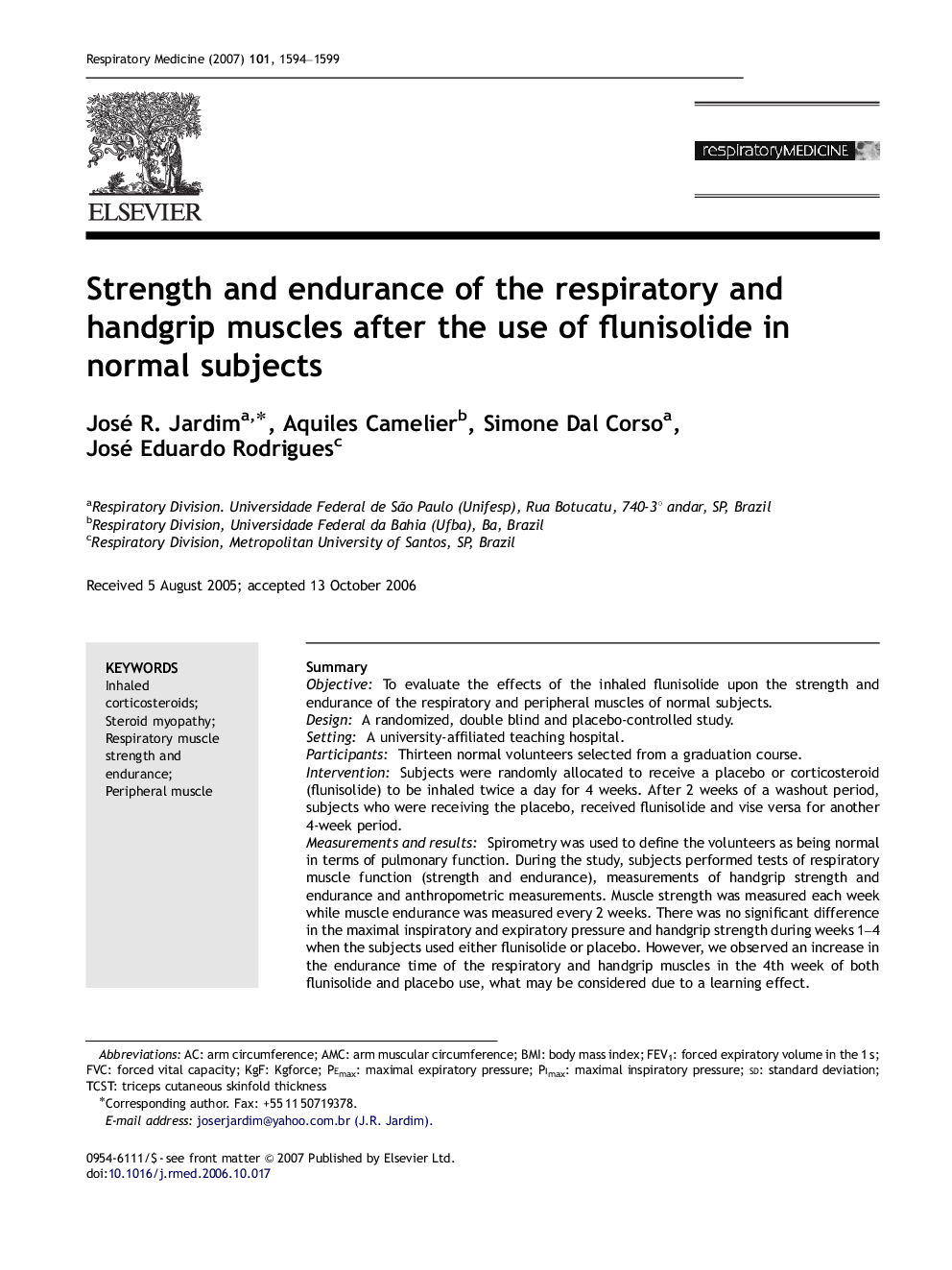| Article ID | Journal | Published Year | Pages | File Type |
|---|---|---|---|---|
| 4211719 | Respiratory Medicine | 2007 | 6 Pages |
SummaryObjectiveTo evaluate the effects of the inhaled flunisolide upon the strength and endurance of the respiratory and peripheral muscles of normal subjects.DesignA randomized, double blind and placebo-controlled study.SettingA university-affiliated teaching hospital.ParticipantsThirteen normal volunteers selected from a graduation course.InterventionSubjects were randomly allocated to receive a placebo or corticosteroid (flunisolide) to be inhaled twice a day for 4 weeks. After 2 weeks of a washout period, subjects who were receiving the placebo, received flunisolide and vise versa for another 4-week period.Measurements and resultsSpirometry was used to define the volunteers as being normal in terms of pulmonary function. During the study, subjects performed tests of respiratory muscle function (strength and endurance), measurements of handgrip strength and endurance and anthropometric measurements. Muscle strength was measured each week while muscle endurance was measured every 2 weeks. There was no significant difference in the maximal inspiratory and expiratory pressure and handgrip strength during weeks 1–4 when the subjects used either flunisolide or placebo. However, we observed an increase in the endurance time of the respiratory and handgrip muscles in the 4th week of both flunisolide and placebo use, what may be considered due to a learning effect.ConclusionInhalation of flunisolide by normal subjects for 1 month does not cause any acute or clinically perceived effect in the peripheral or respiratory muscles.
